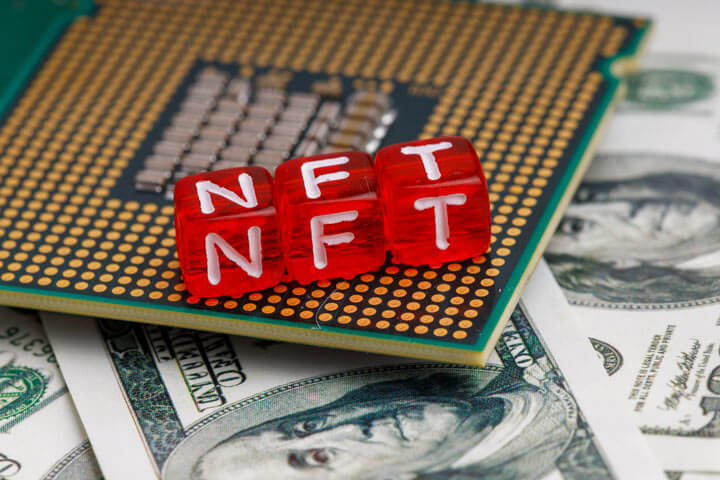NFT Taxation Should Not Be Overlooked
NFTs have risen to popularity at rocket speed. From the moment famous auction house Christie’s sold their first entirely digital art piece with an NFT worth US$69 million, it has hit mainstream media.
Many people are now dabbling in the world of buying as well as creating and selling NFTs.
Whether you’re selling NFTs as an artist or buying it as an investor, it is important to understand NFT taxation to avoid a surprise tax bill.
What is NFT?
NFT stands for non-fungible token. It is a digital token representing ownership of a particular asset stored on a blockchain, usually Ethereum.
As NFTs have high security, are unique and are of public nature, it is often used as digital signatures of both physical and intangible assets. These features have made NFTs popular in the world of art and collectables.
Unlike fungible tokens such as bitcoin, NFTs are one-of-a-kind tokens with a unique value and can’t be duplicated. This has recently resulted in a lot of hype, speculation and excitement, but one key element is often overlooked: taxes.

NFT creators and buyers
Creator
Creating (minting) an NFT or other digital intangible asset does not trigger a taxable event. The sale of the creation is indeed a taxable event.
The creator or artist is a natural person based in a certain jurisdiction. However, the data of the created asset is uploaded online to servers that may be in a different jurisdiction. This may lead to debatable tax implications.
When the assets are created to be sold, the creator typically has two income streams:
- The sales generated from the first buyer of the NFT
- Recurring future income from subsequent resales, similar to royalties
Depending on where the creator is located and the relevant domestic law, these income streams are subject to income tax.
Besides direct taxes, these income streams may be subject to indirect taxes (such as VAT). However, most tax authorities don’t have clear regulations around this (yet).
Buyer
NFTs are often purchased with cryptocurrency. Many jurisdictions regard cryptocurrency as an asset, like stocks or bonds, rather than a currency. Any gain realised from the exchange of cryptocurrency with another asset is taxable. Trading an NFT for another NFT is subject to taxation as well.
NFT buyers can be individuals or companies
For example, you bought a certain amount of ETH for $10,000. If that same amount of ETH is now worth $15,000 and you used it to buy an NFT, your capital gain is $5,000 and you would need to pay Capital Gain Tax on it.
However, if your ETH has depreciated since you bought it, you would incur a capital loss. This could be used to offset other capital gains and lower your tax liability.
In jurisdictions where capital gains are different from trading gains or exempt from tax, it would be relevant to characterise NFTs from the buyer’s perspective.
Another interesting point: for jurisdictions that adopt a territorial tax system, determining the source of income from any subsequent sale can be a challenge.

NFT tax consequences
In recent years, tax authorities worldwide have started to develop tax frameworks around cryptocurrencies. With the rising popularity of NFTs and it becoming more mainstream, they may need to add NFTs to the list soon.
Hong Kong
In Hong Kong there are no specific provisions regarding the taxation of cryptocurrency-related investments and business.
The Inland Revenue Department (IRD) normally adopts the general rules applied to traditional business when determining the taxability of income generated from digital assets/cryptocurrency-related business. The following main factors are therefore relevant:
- Whether a trade or business is carried on in Hong Kong?
- Whether the profits/gains concerned are arising in or derived from Hong Kong?
- Whether the gains involved are capital in nature?
All the above three factors are often disputable between the IRD and taxpayers, resulting in a number of tax cases put forward to the Board of Review (i.e. a tax tribunal) and courts for a ruling.
The above factors are also applied to individuals, not just entities. So investment income earned by individuals can also be subject to Hong Kong tax if the prescribed conditions are met.
In general, there are no fixed and fast rules to address the three factors mentioned above – in particular for income from intangible assets such as NFTs, crypto assets or cryptocurrencies which are usually transacted through online platforms.
USA
First of all, it’s important to note that the Internal Revenue Service (IRS) has not yet taken a formal stance on NFT tax treatment. NFTs could get the same tax treatment as cryptocurrency or be seen as collectable, like stamps, antiques or trading cards.
Many tax experts think NFTs belong in the collectables group, together with art, antiques, gems, stamps, coins, etc. In that case, the tax rate would be significantly higher at 28%.
As a cryptocurrency, an NFT would be taxed as a property rather than currency, with a long-term capital gains tax rate varying from 0-20% based on your income.
However, the above would only be relevant when assets are held for over one year. Regardless of whether they are viewed as property or collectables, NFTs sold within a holding period of one year will be subject to short-term capital gains tax rates.
Because virtually all NFTs are bought and sold with cryptocurrency, the IRS sees NFT transactions as simultaneously a sale of cryptocurrency and purchase of a new digital asset. This action will result in a capital gain or loss, which is a taxable event.
Some platforms facilitate NFT purchases in US dollars. As of now, this is not a taxable event.
Australia
The Australian Taxation Office (ATO) recently released directions for NFT tax treatment. It states that NFTs follow the same tax principles as cryptocurrency, meaning it is treated as taxable assets under Capital Gains Tax (CGT).
These events would be taxable:
- Selling NFTs in exchange for cryptocurrency
- Exchanging NFTs
- Gifting an NFT (unless its gifted to a tax-deductible gift recipient)
- Using NFTs as part of a business or profit-making scheme
HKWJ can help
The gains or profits earned from NFTs are often not insignificant. Therefore, it’s recommended to understand any crypto tax reporting requirements and the tax consequences in your specific jurisdiction.
Besides, it is necessary to look into the relevant facts and circumstances before a conclusion regarding the taxability of income can potentially be drawn.
Understanding your tax position regarding NFTs helps avoid penal actions taken by tax authorities for late or non-reporting of income.
The tax professionals at HKWJ Tax Law & Partners Limited are here to provide you with relevant advice. Reach out to us today for more information.






